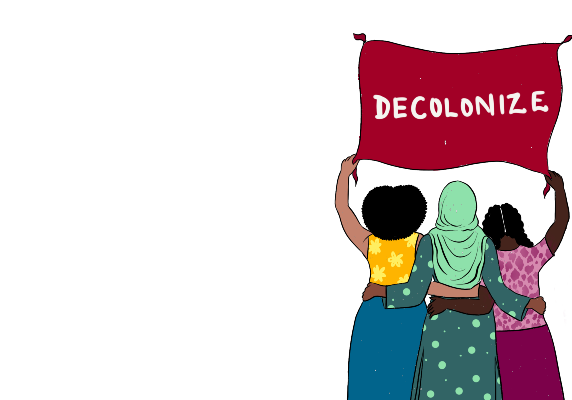Transforming partnerships: a fresh approach to FCDO’s civil society and civic space engagement
In August 2023, the Civil Society and Civic Space Department at the Foreign, Commonwealth, and Development Office (FCDO) introduced a new initiative; they wanted to hear from civil society not just from the UK, but from around the world.
This initiative aimed to redefine FCDO’s centrally managed programmes by extensively involving civil society. The outcome? A transformative report, outlining a roadmap for fostering equitable partnerships, advancing sustainable outcomes, and amplifying the impact of FCDO’s initiatives globally.
Today we are sharing the executive summary with the sector.
Making it happen
Between September and October 2023, the West Africa Civil Society Institute (WACSI) and Bond arranged an engagement process spanning diverse international regions. Through a mix of virtual and face-to-face sessions, along with surveys, a broad spectrum of viewpoints was captured. Leveraging WACSI’s expertise in West Africa and Bond’s leadership across the UK and Europe, this partnership laid the groundwork for profound insights. This approach also guaranteed diverse input beyond the immediate participants.
FCDO engagement report on shaping the future of centrally managed civil society and civic space programming
Get the executive summaryThe engagement process yielded a comprehensive framework to ensure the involvement of diverse stakeholders, including grassroots organisations, CSOs, and community leaders. This inclusive approach facilitated meaningful dialogue and enabled the co-creation of strategies that reflect the needs and aspirations of all stakeholders.
Key Recommendations
The executive summary presents key recommendations emerging from the engagement process, addressing pivotal questions identified by the FCDO. These recommendations are characterised by transparency, inclusivity and a recommitment to positive and equitable change.
The engagement revealed the need to advocate for strategies to rebalance power dynamics, champion trust-based funding, protect civil society in crisis and nurture authentic partnerships.
The approach to funding needs to address the inherent power imbalances between funders, CSOs and the communities they serve. Therefore, flexible funding should become standard practice, enabling organisations and projects to readily adapt to changing circumstances.
The sector has a crucial role in promoting inclusivity, accountability and democratic leadership. Addressing such imbalances can help prevent the abuse of power and promote accountability among those in positions of authority within civic space, and foster social cohesion.
From confronting structural racism to endorsing locally led initiatives, each recommendation embodies a commitment to transparency, inclusivity, and enduring change.
Funding Models
As part of the engagement process, a variety of funding models were devised to align with FCDO’s objectives while adapting to the evolving needs of civil society. These models offer a nuanced approach, blending aspects of collaborative funding mechanisms and independent channels, ensuring flexibility and responsiveness in fund allocation.
Traditional funder model: Aligned with established financing modes, this model features funding mechanisms resembling FCDO initiatives. It includes project-based, small charities, match, foundational, human rights defenders, and pooled funds. Core principles emphasise full cost recovery, safeguarding, absence of commercial fund managers, and direct relationship management with civil society.
Innovative and locally led Funder model: Combining traditional funding with local leadership, this model prioritises community-led initiatives. It encompasses project-based, small charities and diaspora, match, foundational, locally led, and income generation funds. Core principles highlight full cost recovery, safeguarding, decentralisation of power from UK embassies, additional staff and resourcing and trust-based empowerment of communities.
Transformative funder model: Empowering communities to drive change, this model emphasises genuine partnership and community involvement. It comprises project-based, small charities, diaspora, match, foundational, locally led, and funding incubator components. Core principles include full cost recovery, flexible funding covering core costs, decentralisation of power for local leadership, and a trust-based approach empowering communities. Under this model, communities should feel empowered and encouraged to choose a partnership model that best suits their needs.
Despite traditional funding models providing initial support for civil society organisations, they come with risks and limitations that undermine their effectiveness and sustainability in the long run. Our engagement process explored alternative funding approaches that move away from the traditional model, which is systemically limiting. The executive summary sheds light on the recommendations to bring forth funding models designed to support the process of impact and outcomes.
Pioneering a New Trajectory
The release of the executive summary is a significant milestone in FCDO’s journey towards reshaping its engagement with civil society. With a renewed focus on transparency, inclusivity, and sustainability, FCDO is positioned to set a precedent in cultivating equitable partnerships and propelling positive change worldwide.
While the road ahead may pose challenges, it also presents great promise and potential. Recognising the limitations faced by the Civil Society and Civic Space Departments, it’s important to reimagine the roles, relations and processes within civil society to bring attention to CSOs as drivers of development who recognise their contextually geared perspectives, agendas, resources, capacities, and ways of working.
As FCDO embraces this transformative vision, it lays the groundwork for a future where collaboration transcends boundaries, and the impact of civil society resonates widely.
What Happens Next?
WACSI and Bond have submitted the report to the FCDO. The FCDO will review the recommendations and take them into consideration as it designs its new centrally managed civil society and civic space programming. We will also be sending the executive summary to all who participated in the engagement process online and in person.
Category
News & Views



